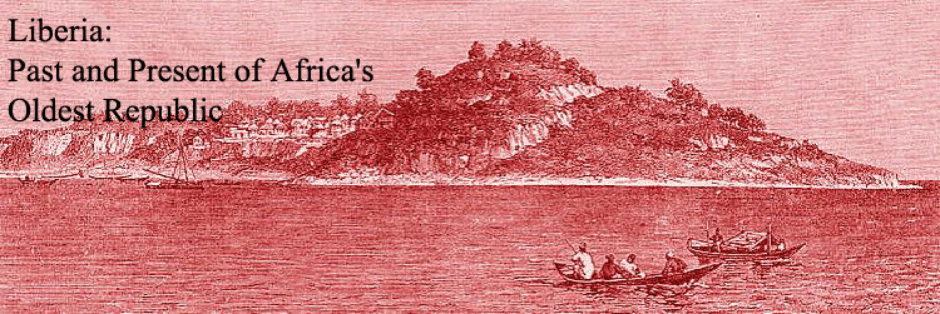‘April 12’. This day ranks among the top three of historical days of Liberia, the first being of course July 26, Independence Day. I would not know the third one. Maybe ‘Flag Day’, somewhere in August, but who knows the exact day by heart? On that broiling hot day in August, 1847, the Liberian flag was hoisted for the first time by a small group of colonists who came from overseas. No, I rather think that April 14 is among the top three. On April 14, 1979, tribal Monrovia rebelled as never before in the country’s history, also known as the ‘rice riots’. During the forbidden demonstration of April 14, 1979 the Monrovian Police Force killed hundreds of people, many more were wounded. Widespread looting followed. Demonstrators asked fellow-Liberians to identify themselves by speaking a tribal language.
One year later, almost on the precise day – also on a Saturday like today -I woke up in Monrovia and heard shooting. Surprised and curious I turned on the radio and soon heard the historical words: ‘God is tired. After 133 years the enlisted men of the Liberian Army led by Master-Sergeant Samuel Doe have toppled the Government because of rampant corruption and continuous failure of the Liberian Government to effectively handle the affairs of the Liberian people. No plane is allowed to come in. No plane is allowed to go out.’
We all know what had happened the night before. We all know what followed. The killing of President William R. Tolbert was only the beginning and the military coup d’état of Liberia’s first president of tribal origin turned out to be the start of a nightmare. As early as 1947 the American author Raymond Leslie Buell had predicted what could happen once the tribal population no longer tolerated the domination of those who considered themselves superior to Liberians of tribal descent. In those days I wrote that ‘The Land of Privileges and Poverty had turned into a Land of Hope and Glory. Whether this hope is justified, only future developments will tell.’
I was right to be careful in my assesssment. I could never have thought, however, that a quarter of a century later Liberia was to recover from one of the most tumultuous episodes of its history, facing three major tasks: to form a nation, to develop the country and to unite its people.
Related links:
https://www.liberiapastandpresent.org/WilliamTolbert.htm
https://www.liberiapastandpresent.org/SamuelKDoe.htm
Recommended reading:
Raymond Leslie Buell, ‘Liberia: A Century of Survival 1847 – 1947’ (New York, 1969; originally published 1947).
